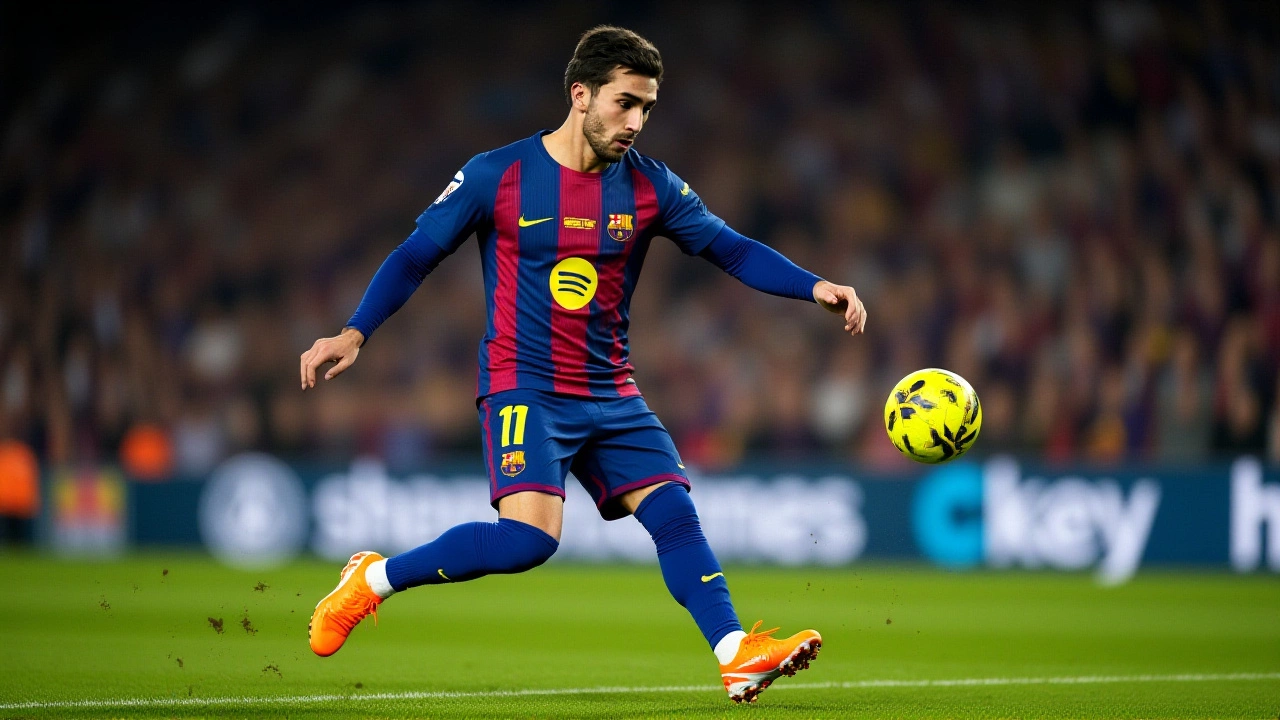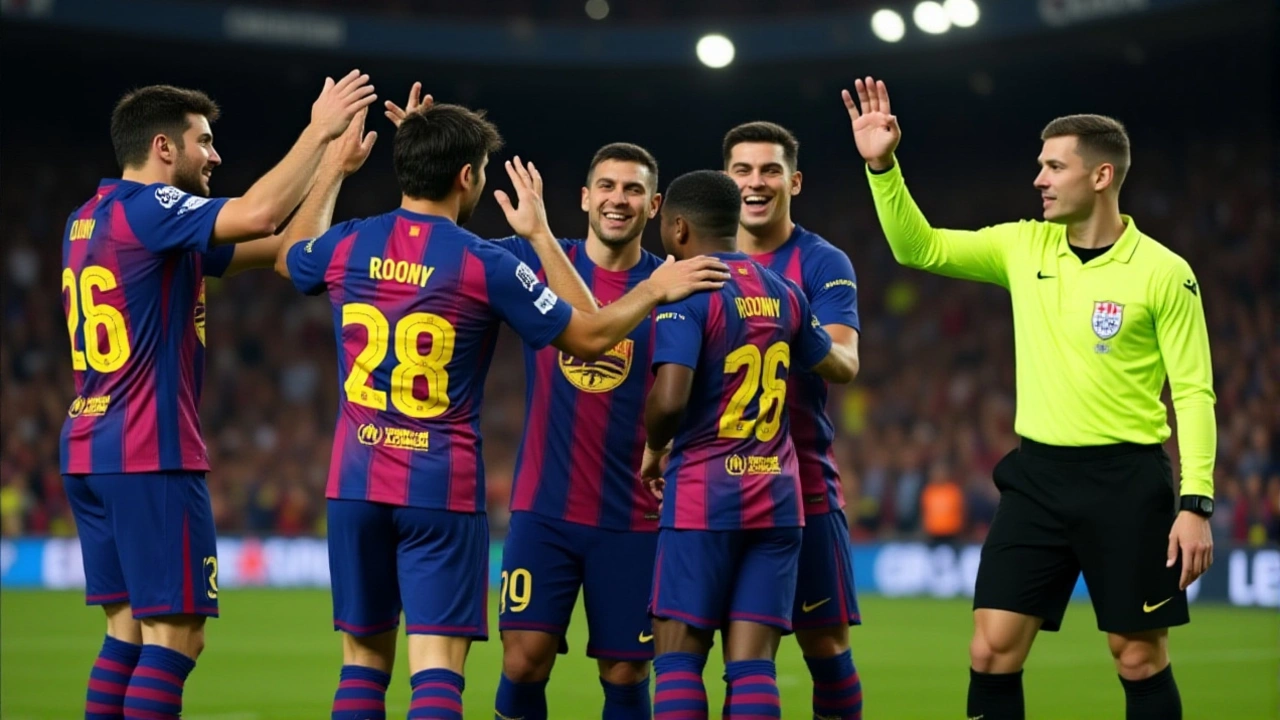When Barcelona Football Club took the pitch at Spotify Camp Nou on November 22, 2025, the air crackled with something deeper than just excitement—it was homecoming. The 4-0 demolition of Athletic Club wasn’t just a win; it was a statement. Ferran Torres lit up the rebuilt stadium with a brace, scoring in the 4th and 54th minutes, while Hansi Flick, the 59-year-old German tactician, stood with his arms crossed, eyes wide, as the crowd roared through every goal. The final whistle blew at 90'+3', sealing a night that had been years in the making.
The Return of the Lion’s Den
After nearly three years away, Barcelona Football Club finally returned to its spiritual home. The Spotify Camp Nou renovation—officially launched in 2023—wasn’t just about new seats or better acoustics. It was about reclaiming identity. The club had been exiled to the Estadi Olímpic Lluís Companys, a venue that, while functional, lacked the soul of the old Camp Nou. Fans didn’t just miss the stadium—they missed the weight of history in every echo of "¡Barca, Barca!" The renovation added 15,000 new seats, brought the capacity to 105,000, and installed a retractable roof capable of withstanding Catalonia’s unpredictable weather. The pitch, now elevated and drained with cutting-edge technology, was praised by players as the fastest in Europe. But none of that mattered until the first goal.Torres and the Perfect Rebirth
Ferran Torres didn’t just score—he symbolized the club’s new era. His first goal, just four minutes in, came from a swift counterattack led by Robert Lewandowski, who slipped a pass through the heart of Athletic’s defense. Torres, sprinting like a man possessed, curled it past Unai Simón with surgical precision. The crowd exploded. It wasn’t just a goal; it was the first breath of the new Camp Nou. The second came just before halftime, in the 45+3’ minute, after a corner kick was flicked on by Jules Koundé. A scramble in the box ended with Torres, unmarked, stabbing it home. The third, at 54’, was pure individual brilliance—a cut inside from the right, a feint that left two defenders stumbling, and a low drive into the far corner. The fourth, a tap-in from Raphinha after a brilliant through ball from Pedri, was almost an afterthought. Athletic Club, reduced to 10 men after a second-half red card (the player’s identity remains unconfirmed), never recovered. Their best chance came in the 74th minute when Gorka Guruzeta was flagged offside—replays showed he was barely onside, but the VAR decision stood. It was a night of near-misses and frustration for the Basque side.
Flick’s Words, the Crowd’s Echo
At 2:22 pm local time, Hansi Flick stepped to the microphone, still wearing his match-day tracksuit. "Being back at the Camp Nou was unbelievable," he said, voice thick with emotion. "This isn’t just a stadium. It’s the heartbeat of this club. The fans… they didn’t just cheer. They sang. And when they sang, I felt something I haven’t felt since I was a boy watching games on TV." His words weren’t just poetic—they were honest. For decades, Camp Nou was more than a venue. It was a cathedral. And on Saturday, it was consecrated again.La Liga’s New Power Play
With the win, Barcelona Football Club moved to 31 points from 13 matches—10 wins, 1 draw, 2 losses—with a +21 goal difference. They’re level on points with Real Madrid Club de Fútbol, who have played one fewer game. But the difference isn’t just in the table. It’s in momentum. Barcelona have won their last six matches. Real Madrid have drawn two of their last three. Villarreal (29 points) and Atlético Madrid (25) are chasing, but the gap is widening. This wasn’t just a homecoming—it was a declaration. The title race is alive, and Barcelona just turned up the volume.
What’s Next for Camp Nou?
The next home game? December 1 against Sevilla. Then Girona. Then Real Sociedad. The schedule doesn’t let up. But now, every match is a celebration. The club plans to unveil a permanent museum exhibit in the north stand next month, featuring memorabilia from the 1992 Olympic final to the 2006 Champions League triumph. And the name? Spotify Camp Nou. It’s controversial. Some fans still call it "Camp Nou." Others say the sponsorship pays for the roof. But on November 22, none of that mattered. The name on the scoreboard? Barcelona. The roar from the stands? Unchanged.Frequently Asked Questions
How does this win affect Barcelona’s chances of winning La Liga?
Barcelona now sits level on points with Real Madrid but has a superior goal difference (+21 vs. +16). With 25 matches left, momentum matters more than tiebreakers right now. Barcelona have won six straight, while Real Madrid have dropped points in two of their last three. If they maintain this form, the title is within reach—especially with home advantage restored at Spotify Camp Nou.
Why was the renovation necessary, and how long did it take?
The original Camp Nou, built in 1957, was structurally outdated and couldn’t meet modern safety, accessibility, or revenue standards. The renovation, which began in 2023, involved rebuilding the entire east and west stands while preserving the original structure. It took 27 months, cost over €1 billion, and displaced the team to the Estadi Olímpic Lluís Companys. The new design includes a retractable roof, improved drainage, and 15,000 additional seats.
What role did Ferran Torres play in this match beyond scoring?
Torres wasn’t just a finisher—he was the catalyst. He dropped deep to link play, pressed Athletic’s defenders relentlessly, and created space for Lewandowski and Raphinha. His movement stretched the defense, opening lanes for midfielders like Pedri and Gavi. He completed 89% of his passes and won 7 of 9 duels. His performance was a microcosm of Flick’s high-intensity, positionally fluid system.
How did fans react to the Spotify sponsorship during the return?
Reactions were mixed. Some fans held banners reading "Camp Nou is Sacred," while others waved Spotify-branded scarves, joking that the sponsorship paid for the new roof. But during the match, chants of "Barça! Barça!" drowned out any commercial noise. The club says the deal brings in €80 million annually, funding the renovation and youth academy. For many, it’s a pragmatic trade-off: legacy preserved, future secured.
What’s the historical significance of beating Athletic Club at this match?
Athletic Bilbao, founded in 1898, is one of Barcelona’s oldest rivals and one of the few clubs to never sign foreign players—a point of pride. Their 4-0 loss at the new Camp Nou is the heaviest defeat they’ve suffered there since 2017. Historically, Barcelona have struggled to dominate Athletic at home, making this win symbolic. It wasn’t just about the stadium—it was about asserting dominance over a club that embodies Basque identity and resilience.
When will the full stadium be officially inaugurated?
The first match was a de facto inauguration, but the club plans a formal ceremony on January 15, 2026, featuring a tribute to Joan Gamper and a performance by Catalan folk ensemble La Lira. The event will include a documentary screening of the renovation process and a moment of silence for fans who passed away during the exile. The pitch will be lit with LED strips for the first time that night.
